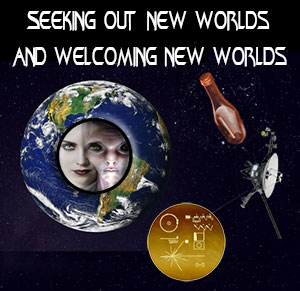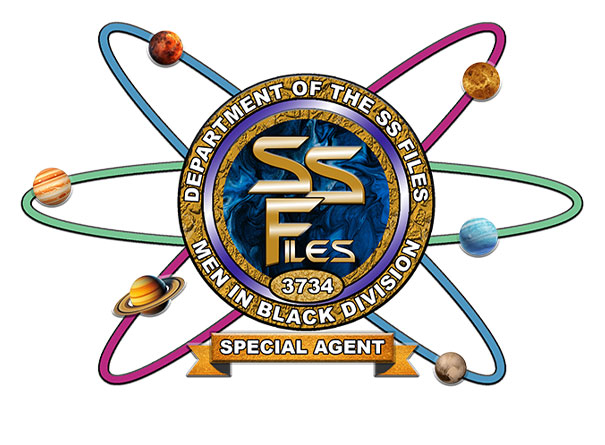 |
|
| |
 Of course we’re not. There are plenty of aliens out there. There must be. The known universe is gigantic. There are 700 quintillion planets in the Universe, by the best current estimates; yes, that’s a real number, and if you write it out, it’s 700,000,000,000,000,000,000. The overwhelming majority of planets can’t sustain anything like life—look at our own solar system, where Earth is located in what is called a perfect “Goldilocks zone” relative to the sun. It’s not so hot that we boil alive (as we would on Venus or Mercury) and not so cold that we would freeze to death (as on every other planet in our neighborhood). But even this is not dispositive. Just because we wouldn’t thrive on a planet, doesn’t mean that something won’t. Of course we’re not. There are plenty of aliens out there. There must be. The known universe is gigantic. There are 700 quintillion planets in the Universe, by the best current estimates; yes, that’s a real number, and if you write it out, it’s 700,000,000,000,000,000,000. The overwhelming majority of planets can’t sustain anything like life—look at our own solar system, where Earth is located in what is called a perfect “Goldilocks zone” relative to the sun. It’s not so hot that we boil alive (as we would on Venus or Mercury) and not so cold that we would freeze to death (as on every other planet in our neighborhood). But even this is not dispositive. Just because we wouldn’t thrive on a planet, doesn’t mean that something won’t.
When you combine our own existence with the fact that the universe is unfathomably huge and contains quintillions of possibilities, there’s strong evidence to suggest the presence of sophisticated “aliens” on other planets. Harvard astrophysicist Avi Loeb explains:
|
I do not view the possibility of [an extraterrestrial] technological civilization as speculative, for two reasons. The first is that we exist. And the second is that at least a quarter of the stars in the Milky Way galaxy have a planet like Earth, with surface conditions that are very similar to Earth, and the chemistry of life as we know it could develop. If you roll the dice so many times, and there are tens of billions of stars in the Milky Way, it is quite likely we are not alone.
|
We should work on the assumption that aliens are out there.
Lots of them. I cannot imagine any single discovery that would have more impact on humanity than the discovery of life outside of our solar system. There is a human-centric, Earth-centric view of life that permeates most cultural and societal thinking. Finding that there is multiple, perhaps millions of origins of life and that life is ubiquitous throughout the universe will profoundly affect every human.
Read More >>>>
We live on a microbial planet. There are one million microbial cells per cubic centimeter of water in our oceans, lakes and rivers: deep within the Earth's crust and throughout our atmosphere. We have more than 100 trillion microbes on and in each of us. The Earth's diversity of life would have seemed like science fiction to our ancestors. We have microbes that can withstand millions of Rads of ionizing radiation; such strong acid or base that it would dissolve our skin; microbes that grow in ice and microbes that grow and thrive at temperatures exceeding 100 degrees C. We have a life that lives on carbon dioxide, on methane, on sulfur, or on sugar. We have sent trillions of bacteria into space over the last few billion years, and we have exchanged material with Mars on a constant basis, so it would be very surprising if we do not find evidence of microbial life in our solar system, particularly on Mars.
The recent discoveries of numerous Earth and super-Earth-like planets outside our solar system, including water worlds, greatly increase the probability of finding life. Estimates approximately 100,000 Earth and super-Earths within our own galaxy. The universe is young so wherever we find microbial life there will be intelligent life in the future.
And maybe, the living beings of planet Earth are alone in that fact — and we really are the only biological creatures in the entire universe.
According to Gallup, 75% of Americans believe there is life out there somewhere. Maybe that’s why people dedicate their entire lives to this cause, the idea of another world outside our own.
From a scientific perspective, there is chemical proof that there are places in our galaxies that could or have held life.
“Methane and oxygen together make a redox pair: two molecules that will readily react by exchanging electrons … they would quickly combine to produce carbon dioxide and water
Knowing the basics of life itself, any living creature we know of or could understand to this point would have to have some interaction with water.
A couple of years ago, NASA released information regarding water on Mars. This in itself sparked many to think of a day when we as humans might migrate there, and others to consider those who used to reside there.
|
|
 |
|





 Of course we’re not. There are plenty of aliens out there. There must be. The known universe is gigantic. There are 700 quintillion planets in the Universe, by the best current estimates; yes, that’s a real number, and if you write it out, it’s 700,000,000,000,000,000,000. The overwhelming majority of planets can’t sustain anything like life—look at our own solar system, where Earth is located in what is called a perfect “Goldilocks zone” relative to the sun. It’s not so hot that we boil alive (as we would on Venus or Mercury) and not so cold that we would freeze to death (as on every other planet in our neighborhood). But even this is not dispositive. Just because we wouldn’t thrive on a planet, doesn’t mean that something won’t.
Of course we’re not. There are plenty of aliens out there. There must be. The known universe is gigantic. There are 700 quintillion planets in the Universe, by the best current estimates; yes, that’s a real number, and if you write it out, it’s 700,000,000,000,000,000,000. The overwhelming majority of planets can’t sustain anything like life—look at our own solar system, where Earth is located in what is called a perfect “Goldilocks zone” relative to the sun. It’s not so hot that we boil alive (as we would on Venus or Mercury) and not so cold that we would freeze to death (as on every other planet in our neighborhood). But even this is not dispositive. Just because we wouldn’t thrive on a planet, doesn’t mean that something won’t.